
China’s Xi begins historic third term as President
Xi Jinping has been handed an unprecedented third term as president, capping a rise that has seen him become China’s most powerful leader in generations.
In a carefully choreographed ceremony in Beijing, Xi held up his right fist and placed his left hand on a red leather copy of China’s constitution.
In the oath – beamed live on state television across the nation – he vowed to “build a prosperous, strong, democratic, civilized, harmonious and great modern socialist country”.
The appointment by China’s rubber-stamp parliament comes after he was handed another five years as head of the Chinese Communist party (CCP) and the military – the two more significant leadership positions in Chinese politics – in October.
Since then, 69-year-old Xi has faced challenges including mass protests over hiszero-Covid policy and its subsequent abandonment that saw countless people die.
Those issues have been avoided at this week’s National People’s Congress (NPC), a closely watched event that over the next two days is also set to appoint Xi allyLi Qiang as the new premier, putting him in charge of managing the world’s second largest economy, according to The Guardian.
The lawmakers have focused instead on a sweeping revamp of Beijing’s science ministry and tech capabilities in the face of what one NPC deputy described as foreign attempts at “containment and suppression” of the country’s rise.
The body on Friday passed reforms to government institutions unveiled earlier this week, including a sweeping overhaul of the country’s science and technology ministry in the face of what one NPC deputy described as foreign attempts at “containment and suppression” of the country’s rise. New reforms also included the formation of a financial regulatory body and national data bureau.
The beginning of China’s new political term also saw former vice premier Han Zheng elected as its new vice-president and Zhao Leji, former chief of the party’s top anti-corruption commission, as the new parliamentary chair. Both are members of China’s highest political decision-making body, the Politburo Standing Committee. The election process, carried out at the Great Hall of the People at Beijing’s Tiananmen Square, lasted around an hour.
Beijing also unveiled during the parliamentary meeting a growth goal of “around 5%” – one of its lowest in decades – as well as a modest increase in defence spending, The Guardian reported.
Xi’s reelection is the culmination of a remarkable rise from a relatively little-known party apparatchik to the leader of a global superpower.
For decades China – scarred by the dictatorial reign and cult of personality of founding leader Mao Zedong – has eschewed one-man rule in favour of a more consensus-based, but still autocratic, leadership.
That model imposed term limits on the largely ceremonial role of the presidency, with Xi’s predecessors Jiang Zemin and Hu Jintao relinquishing power after 10 years in office.
Xi has torn up that rulebook, abolishing term limits in 2018.
His coronation this week sets him up to become modern China’s longest-serving head of state, and will mean Xi will rule well into his seventies and – if no challenger emerges – even longer.
But the beginning of his unprecedented third term leading China comes as the world’s second-largest economy faces major headwinds, from slowing growth and a troubled real estate sector to a declining birthrate.
Relations with the United States are also at a low not seen in decades, with the powers sparring over everything from human rights to trade and technology, according to The Guardian.
In a speech to delegates at the Chinese People’s Political Consultative Conference (CPPCC), which runs alongside the NPC this week, Xi criticised Washington’s “containment, encirclement and suppression of China”.
China, he said, must “have the courage to fight as the country faces profound and complex changes in both the domestic and international landscape”.
Xi will make a speech on Monday before the annual parliamentary session closes, as China faces multiple challenges including an economy hobbled by three years of Covid curbs and worsening relations with the West.



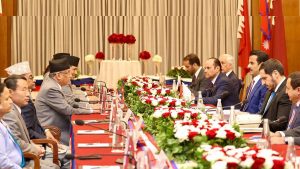
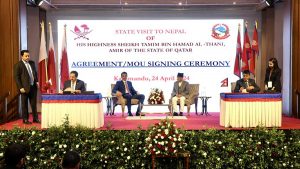
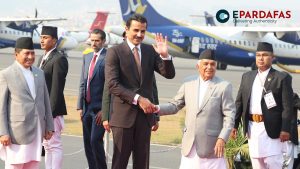
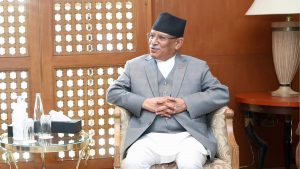
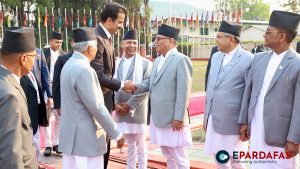

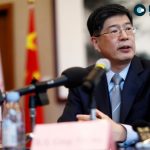
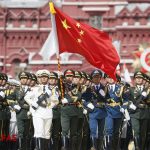
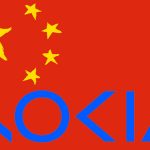


Comments